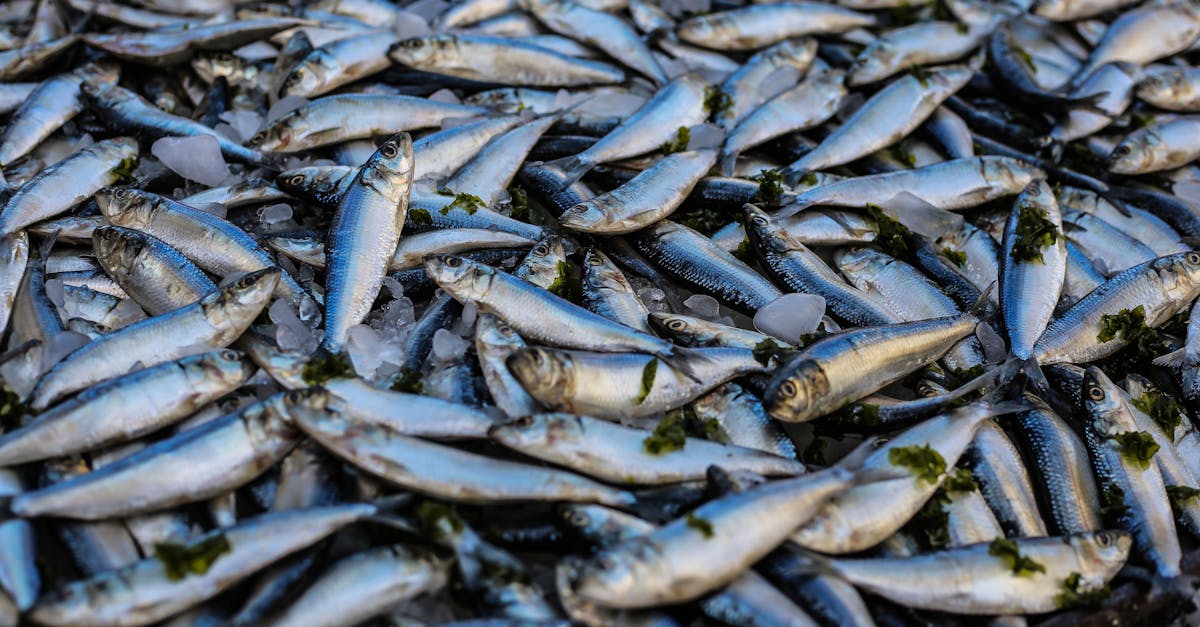What are the Health Benefits of Low Histamine Fish

Benefits for Allergies and Intolerances
Individuals with histamine intolerance often experience adverse reactions after consuming high-histamine foods. Low histamine fish options can provide a safe alternative, minimising uncomfortable symptoms such as headaches, skin rashes, and digestive issues. This dietary choice is particularly beneficial for those who need to adhere strictly to a low-histamine lifestyle, helping them enjoy seafood without the associated risks of histamine release.
Choosing low histamine fish can also enhance overall well-being. By reducing the likelihood of allergic responses, individuals may find improvements in their quality of life. This dietary approach allows for the enjoyment of a varied and nutritious diet while avoiding the complications that can arise from histamine intolerances and allergies. Engaging in a meal plan centred around these fish selections may lead to greater dietary satisfaction and comfort.
Reduced Reaction Risk with Low Histamine Options
Choosing low histamine fish can significantly lower the risk of adverse reactions for individuals sensitive to histamines. Fresh fish varieties, such as cod and haddock, generally contain lower histamine levels compared to aged or processed fish. This distinction is crucial for those who suffer from histamine intolerance or allergies, as consuming high histamine foods can trigger symptoms such as headaches, gastrointestinal distress, or skin reactions.
Incorporating low histamine options into meals not only supports better health but also improves overall comfort when dining. Prioritising fish that is sustainably sourced and freshly prepared can enhance both the culinary experience and nutritional profile. By selecting appropriate fish types, individuals can enjoy the numerous health benefits associated with seafood while minimising the likelihood of histamine-related issues.
Impact on Mental Health
Research increasingly highlights the intricate link between diet and mental health. Nutritional choices can influence neurotransmitter function and overall brain health. Low histamine fish options may contribute positively, supplying essential fatty acids that support cognitive function. Omega-3 fatty acids found in many fish varieties are also associated with reducing symptoms of depression and anxiety, making these dietary selections particularly beneficial for mental well-being.
Incorporating low histamine fish into a regular diet may help some individuals manage mood fluctuations. Rather than creating additional stress through stringent meal planning, these options offer a versatile solution. Fish dishes can be easily adapted to suit varied palates and culinary preferences, encouraging a healthier eating routine. This adaptability not only fosters greater enjoyment of meals but may also lead to improved mental health outcomes through increased dietary satisfaction.
The Connection Between Diet and Mood
A diet rich in low histamine fish may positively influence mood regulation and mental well-being. Fish like cod, haddock, and trout are known for their high omega-3 fatty acid content. Omega-3s play a crucial role in brain health and have been associated with reduced symptoms of depression and anxiety. Consuming these fish can contribute to an overall healthier diet, potentially leading to improved emotional resilience.
The absence of histamine in certain fish varieties also means that individuals who are sensitive to histamines might experience fewer mood fluctuations. Histamine intolerance can lead to various symptoms, including irritability and agitation. By opting for low histamine options, individuals may find it easier to maintain a stable mood. Regularly including these fish in meals could encourage a more balanced emotional state over time.
Versatility in Meal Preparation
Low histamine fish offers a multitude of culinary possibilities, making it a valuable addition to any meal plan. Grilling, baking, or steaming are all effective cooking methods that retain the fish's natural flavours and nutritional benefits. Combining these fish varieties with a range of herbs, spices, and low histamine-friendly vegetables can elevate any dish while ensuring you avoid triggering intolerances.
Incorporating low histamine fish into your diet need not be a challenge. Preparing simple dishes such as fish tacos with corn tortillas, or adding warm, grilled fillets to a fresh salad, can be done quickly and easily. Meal prepping with these fish options allows for versatile, ready-to-eat meals that cater to a variety of tastes and preferences.
Easy Ways to Incorporate into Your Diet
Incorporating low histamine fish into daily meal plans can be straightforward. Consider starting the day with a refreshing breakfast that includes a fish option. Smoked salmon on whole-grain toast topped with avocado provides a nutritious and satisfying meal. For lunch, a simple salad featuring canned tuna, mixed greens, and a drizzle of olive oil can be both quick and filling.
For dinner, explore the versatility of low histamine fish by preparing dishes like grilled mackerel or baked cod, seasoned with herbs and served alongside seasonal vegetables. Creating fish tacos using low histamine options can add a fun twist to your weeknight meals. Experimenting with different cooking methods and flavour combinations keeps the menu exciting and ensures a variety of nutrients.
FAQS
What is low histamine fish?
Low histamine fish refers to types of fish that contain lower levels of histamine, making them suitable for individuals with histamine intolerance or allergies.
How can low histamine fish benefit those with allergies or intolerances?
Low histamine fish can reduce the risk of allergic reactions and intolerances, as they are less likely to trigger symptoms associated with high histamine levels.
Is there a connection between low histamine fish and mental health?
Yes, certain low histamine fish are rich in omega-3 fatty acids, which have been linked to improved mood and overall mental health.
What are some easy ways to incorporate low histamine fish into my diet?
You can incorporate low histamine fish by grilling, baking, or adding them to salads, wraps, or fish tacos for a nutritious meal.
Are there specific types of fish that are considered low histamine?
Yes, some fish generally considered low histamine include fresh salmon, trout, and sardines, but it's important to ensure they are fresh and properly stored to maintain low histamine levels.
Related Links
Why is Omega-3 Important for Heart HealthWhat Types of Low Histamine Fish Should You Eat